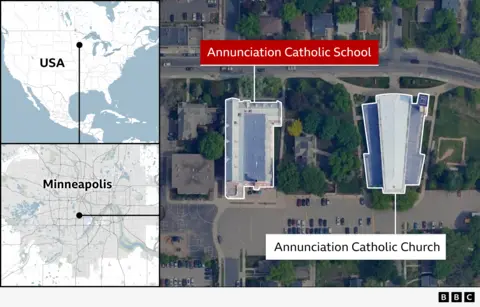Robert Francis Prevost, now known as Pope Leo XIV, has captured the world's attention as he steps into the role of the 267th pontiff of the Roman Catholic Church. The announcement from St. Peter's Basilica was met with jubilant cries of "Viva il Papa," celebrating his historic election as the first American pope, despite his deep ties to Latin America through his extensive ministry in Peru.
Prevost, born in 1955 in Chicago to Spanish and Franco-Italian parents, began his religious journey as an altar boy, becoming ordained in 1982. After moving to Peru in 1985, he became known for his compassionate work with underserved communities, fostering connections across cultural lines. His decade-long tenure as a parish pastor and educator in Trujillo won him respect and admiration.
In his inaugural address, Pope Leo XIV paid homage to his predecessor, Pope Francis, stating, "We still hear in our ears the weak but always courageous voice of Pope Francis who blessed us." He emphasized unity with God and a collective forward movement, reflecting the values he plans to uphold during his pontificate.
From 2014, when he was appointed Bishop of Chiclayo, to his elevation to cardinal just months prior to his papal appointment, Prevost has been a significant figure within the Church's hierarchy. His experience as prefect of the Dicastery for Bishops in Latin America has positioned him as an influential voice in selecting and guiding the region's bishops.
Pope Leo XIV's initial pronouncements regarding continuing the progressive reforms of Pope Francis will be closely scrutinized. It is believed he shares his predecessor's values on migration, poverty, and climate change. Friends describe him as approachable and dedicated to aiding those in need, underlining his commitment to service, which resonates with the Catholic social teaching.
As discussions about the new pope’s stance on sensitive issues arise, some speculate whether he might be less liberal than Francis, particularly regarding LGBTQ rights. While he has shown support for Francis' initiatives, he emphasizes localized interpretations of Church directives.
Prevost's commitment to sound environmental practices echoes through his calls for action on climate change and foundational initiatives at the Vatican, such as renewable energy adoption and electric vehicles.
Celebrations are already taking place in Peru, where many consider Leo XIV one of their own, symbolizing a broader connection between the pontiff and a global audience. With a name historically linked to a commitment to social justice, Pope Leo XIV represents not only the merging of American and Latin ecclesiastical leadership but also a new chapter for the Church in addressing modern challenges.





















